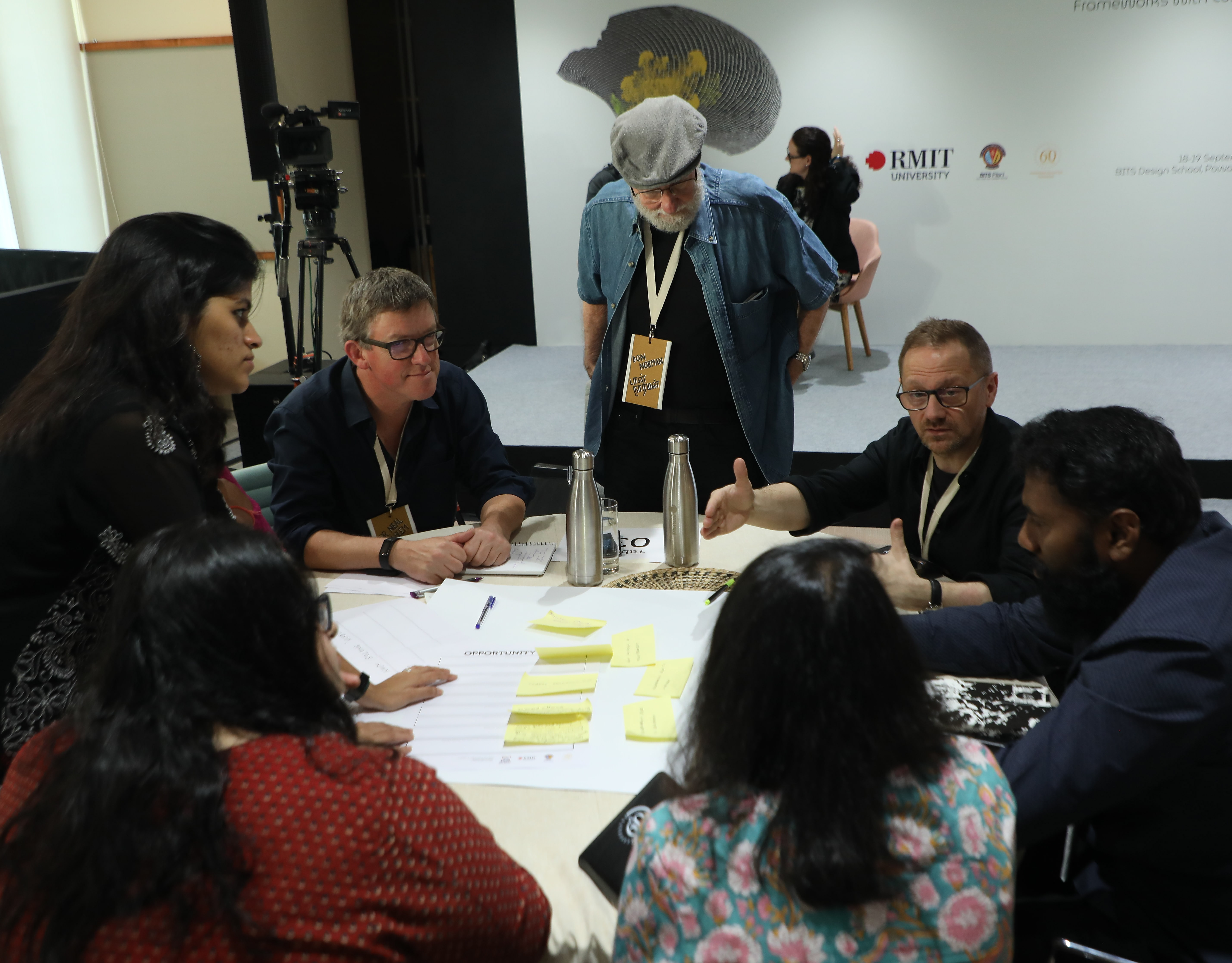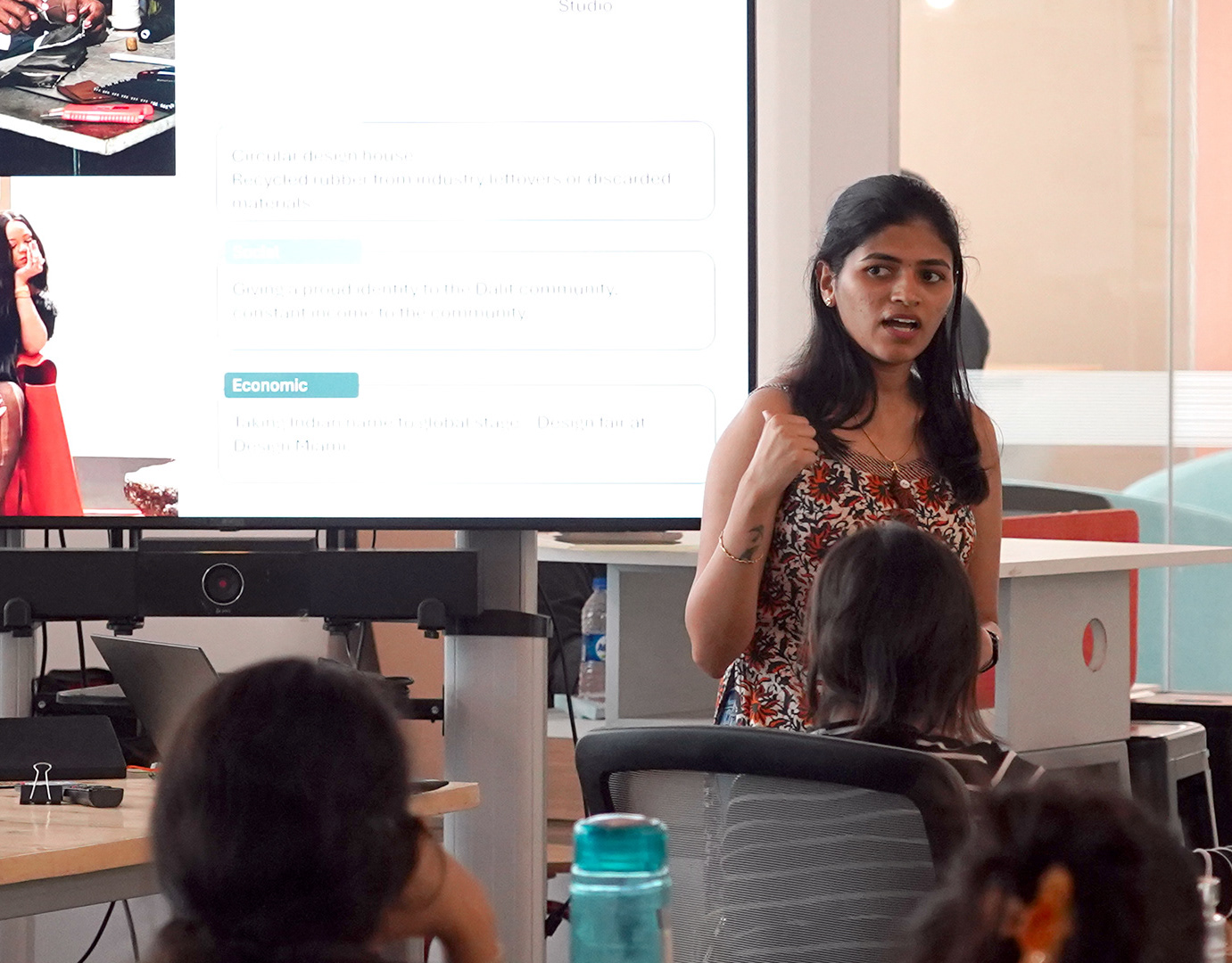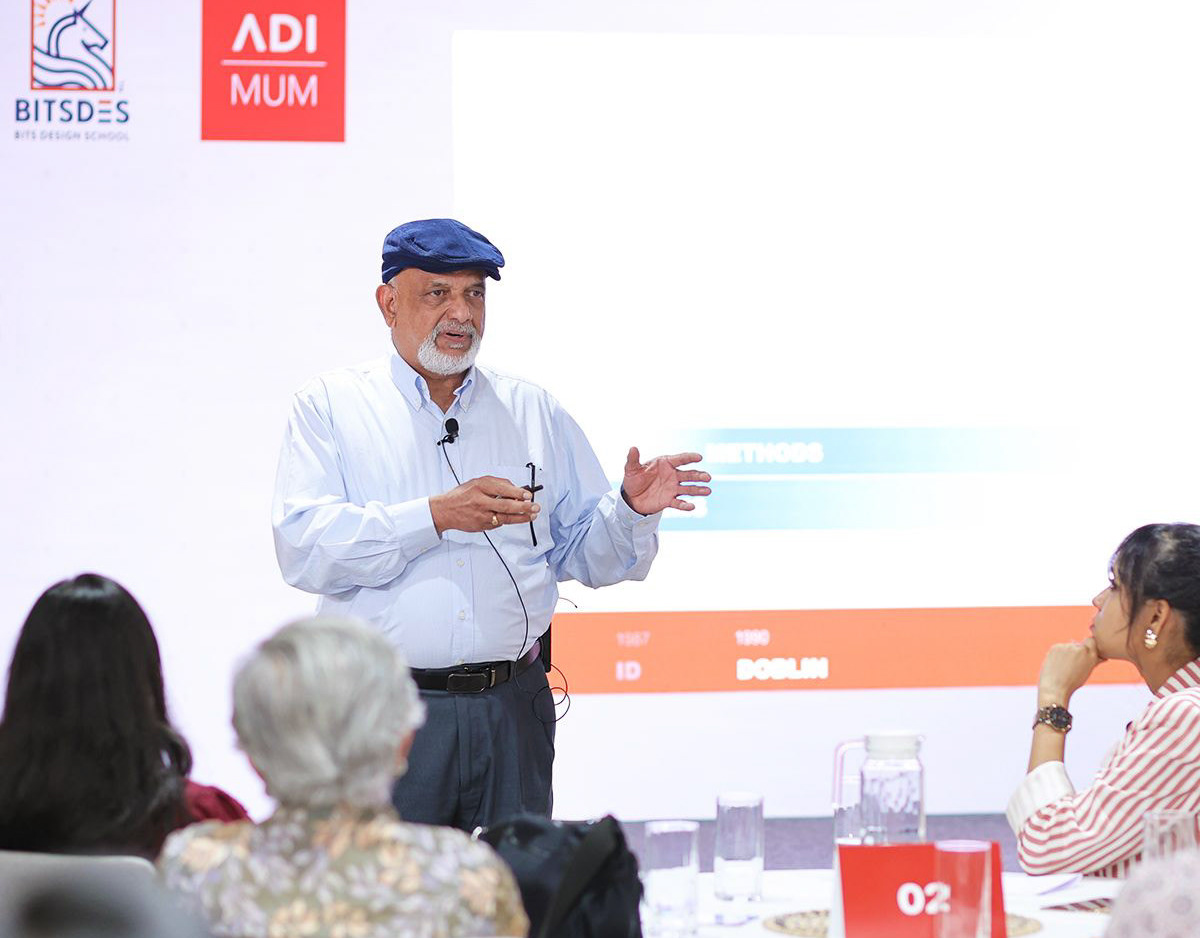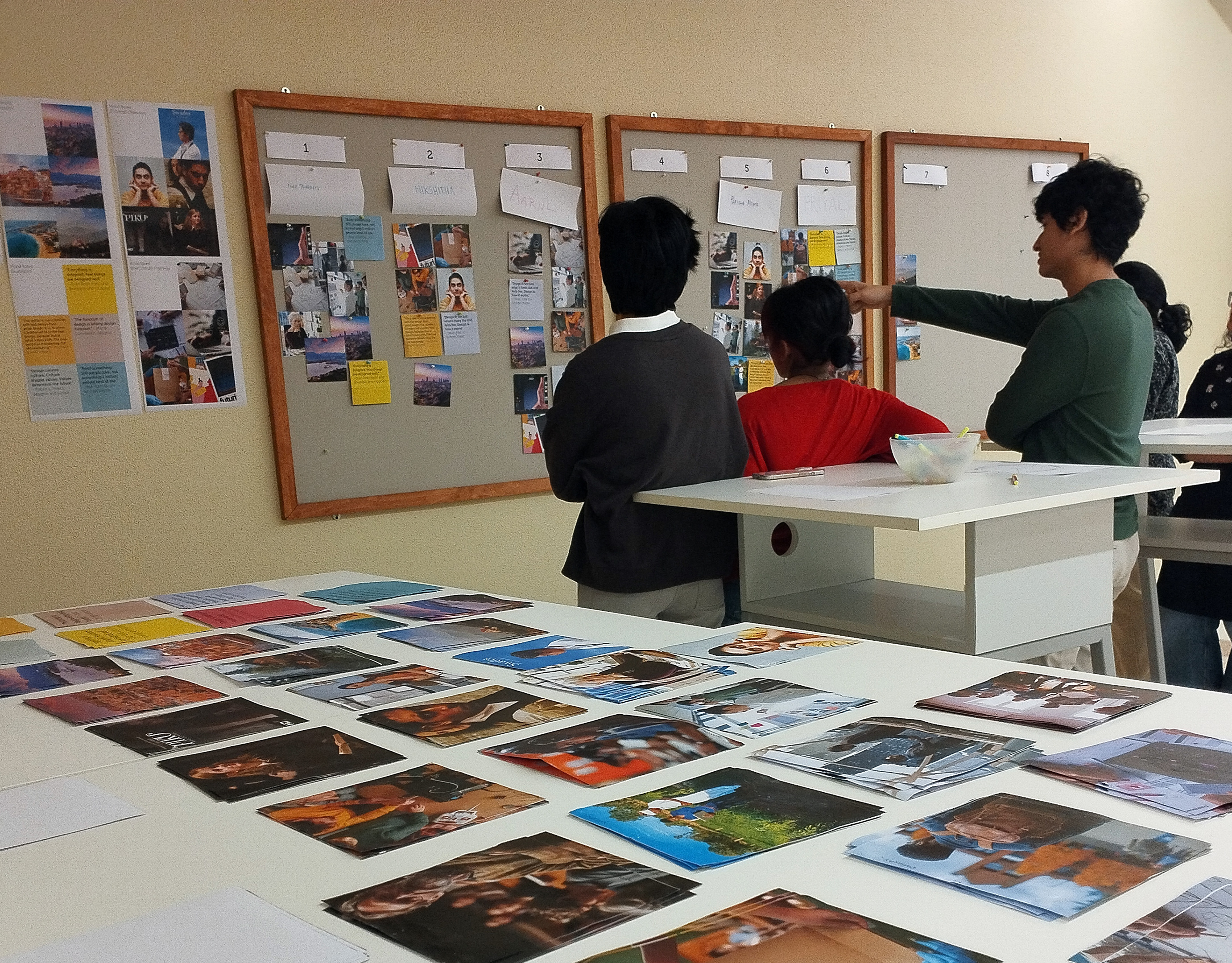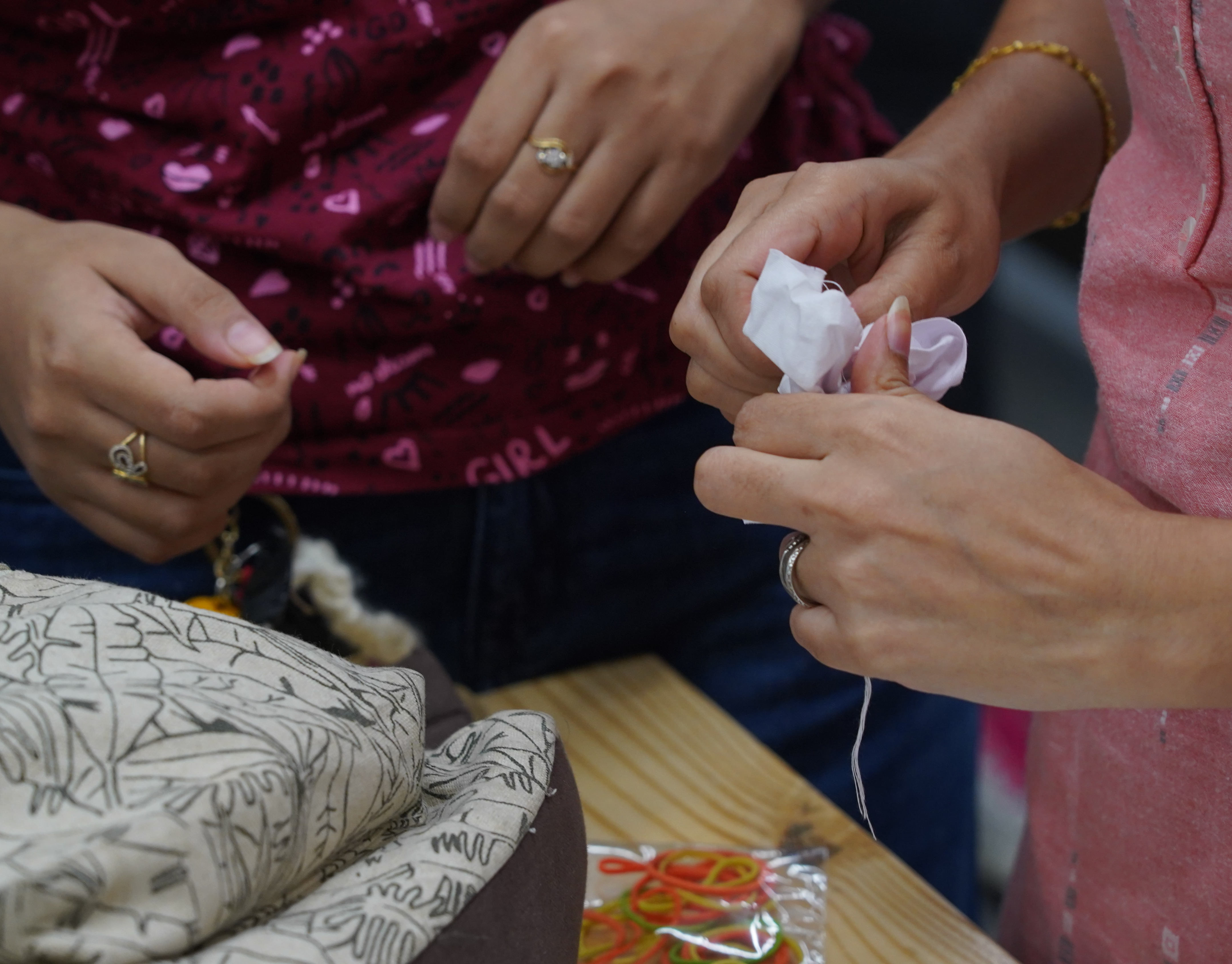


• Type: Presentation
• Title: Kannur: The Land of Looms and Lores
• Module: DES F102.1 Material Studies Lab
• Period / Date: September 2024
• Organization: BITS Design School Mumbai
• Title: Kannur: The Land of Looms and Lores
• Module: DES F102.1 Material Studies Lab
• Period / Date: September 2024
• Organization: BITS Design School Mumbai
ABOUT
The presentation was aimed at introducing design students to the craft and textile traditions of Kannur, known as the "Land of Looms and Lores." The objective was to provide insights into traditional textile production processes, including dying, warping, weaving, and packaging. The presentation also highlighted key learnings from industrial visits and personal projects undertaken during the presenter’s academic journey in textile design. The session sought to inspire students to explore the intersection of craft and design, emphasizing the value of preserving and innovating within traditional textile practices.
The presentation was aimed at introducing design students to the craft and textile traditions of Kannur, known as the "Land of Looms and Lores." The objective was to provide insights into traditional textile production processes, including dying, warping, weaving, and packaging. The presentation also highlighted key learnings from industrial visits and personal projects undertaken during the presenter’s academic journey in textile design. The session sought to inspire students to explore the intersection of craft and design, emphasizing the value of preserving and innovating within traditional textile practices.
PROCESS
The presentation followed a structured flow consisting of three key segments:
The presentation followed a structured flow consisting of three key segments:
a. Overview of Kannur’s Textile Heritage
• The presentation began with an introduction to Kannur’s rich textile history, known for its handloom industry and unique cultural traditions like Theyyam.
• Images and visuals were used to illustrate the cultural and historical context of Kannur’s textile sector.
• The presentation began with an introduction to Kannur’s rich textile history, known for its handloom industry and unique cultural traditions like Theyyam.
• Images and visuals were used to illustrate the cultural and historical context of Kannur’s textile sector.
b. Craft and Industrial Processes
The presenter shared insights from a craft visit, detailing the stages involved in traditional textile production:
• Dying – Preparing and adding color to fabrics using traditional methods.
• Warping – Arranging yarns in a specific order to prepare the loom.
• Weaving – Creating fabric through the interlacing of warp and weft threads.
• Packing – Finishing and preparing the woven fabrics for distribution.
• Winding – Preparing the yarns for the weaving process.
The presenter shared insights from a craft visit, detailing the stages involved in traditional textile production:
• Dying – Preparing and adding color to fabrics using traditional methods.
• Warping – Arranging yarns in a specific order to prepare the loom.
• Weaving – Creating fabric through the interlacing of warp and weft threads.
• Packing – Finishing and preparing the woven fabrics for distribution.
• Winding – Preparing the yarns for the weaving process.
The presenter also discussed key takeaways from industrial visits, covering advanced textile production methods like:
• Circular knitting – Creating seamless fabrics using circular knitting machines.
• Rotary screen printing – Printing intricate patterns onto fabric using rotary screens.
• Circular knitting – Creating seamless fabrics using circular knitting machines.
• Rotary screen printing – Printing intricate patterns onto fabric using rotary screens.
c. Personal Work and Reflections
The presenter shared personal projects to demonstrate how craft and industrial techniques can be integrated into contemporary design:
• Craft Development Project – Undertaken during a Bachelor’s program in Textile Design at NIFT Kannur (2016–2020).
• Dissertation Project – Conducted during a Master’s program in Design at NIFT Gandhinagar (2021–2023).
The presenter shared personal projects to demonstrate how craft and industrial techniques can be integrated into contemporary design:
• Craft Development Project – Undertaken during a Bachelor’s program in Textile Design at NIFT Kannur (2016–2020).
• Dissertation Project – Conducted during a Master’s program in Design at NIFT Gandhinagar (2021–2023).
Students were encouraged to reflect on how traditional techniques could be reinterpreted and adapted to modern design practices.
CONCLUSION
The presentation provided students with a comprehensive understanding of the textile traditions of Kannur and the relevance of combining craft and industrial processes in contemporary design. The case studies and personal projects demonstrated the potential for innovation within the textile sector. The session concluded with a discussion on how students can integrate traditional techniques into their design practice, fostering a deeper appreciation for textile heritage and creative exploration.
The presentation provided students with a comprehensive understanding of the textile traditions of Kannur and the relevance of combining craft and industrial processes in contemporary design. The case studies and personal projects demonstrated the potential for innovation within the textile sector. The session concluded with a discussion on how students can integrate traditional techniques into their design practice, fostering a deeper appreciation for textile heritage and creative exploration.
Browse portfolio:
